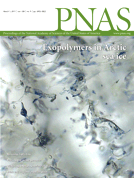
Title: The L3MBTL3 Methyl-Lysine Reader Domain Functions As a Dimer
What Caught Our Attention: Six months ago, the U.S. Office of Research Integrity (ORI) determined that former graduate student Brandi Baughman had doctored 11 figures in a PLOS ONE article, which was retracted shortly after. The PLOS ONE paper listed two affiliations for Baughman — the National Institute of Environmental Health Sciences and the University of North Carolina, Chapel Hill (UNC); now UNC has triggered a second retraction of a paper co-authored by Baughman, also due to research misconduct. Although the ORI notice makes no mention of this additional paper, the agency recently took a “targeted approach” by not issuing comprehensive findings of misconduct for one researcher, in order to conserve resources. Of course, sometimes universities make findings that don’t meet the ORI’s bar, too. Continue reading Caught Our Notice: After ORI flags a paper by former grad student, university flags another






